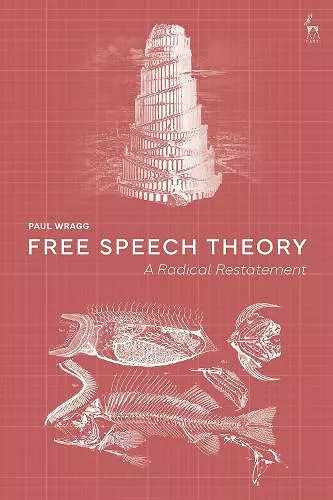Free Speech Theory
A Radical Restatement
Format:Hardback
Publisher:Bloomsbury Publishing PLC
Published:29th May '25
Currently unavailable, and unfortunately no date known when it will be back

Provides a radical reappraisal of the right to free speech by critiquing pre-existing theory and offers a novel reinterpretation of the right as a matter of theory and practice.
Do free speech rights apply against private actors?
Free Speech Theory challenges contemporary thought on this issue. It champions free speech not for its contribution to epistemic advance or informed democratic participation, but as a product of individuality, located in a system of freedom from state control. This has wide-ranging implications for rights-claims directed against private actors concerning online, workplace, and public-interest based forms of speech.
This innovative, rigorously researched, and comprehensive restatement of free speech principle is both topical and important. It has significance for policy makers, practitioners, and commentators around the world.
We should be grateful to Wragg for boiling a considerable ocean of free speech theory down to a series of more cordial measures. He covers a huge amount of ground … [He] has made a significant contribution to the theory of freedom of speech with this book. * International Journal of Communication *
In recent years the free speech ecosystem has changed beyond all recognition, necessitating us to question the meaning of free speech, and to re-think the theoretical foundations upon which ‘the right to free speech’ is laid. Paul Wragg’s novel and convincing restatement of free speech theory shakes these foundations and reinvigorates this debate. This book is, therefore, not only timely and ground-breaking, but will be the lodestar that free speech theorists and lawyers follow for years to come. * Dr Peter Coe, Birmingham Law School, University of Birmingham *
Professor Paul Wragg’s book is probably the most important work on free speech theory since Fred Schauer's Free Speech: A Philosophical Enquiry. Following the intention of John Stuart Mill, the author challenges dead dogmas. Wragg raises Mill from his grave and gives a new, revelatory interpretation of his famous essay. The theoretical issues of freedom of speech have hitherto been dominated in the international arena by American literature, which builds on the First Amendment jurisprudence as its starting point. Now, at last, the essential European work has been written that really digs deep into the question and, moving away from legal positivism, seeks an answer to the question: what is free speech? A fridge magnet in my kitchen proclaims: ‘freedom of speech is not a licence to be stupid’. Wragg might have a different opinion. He argues forcefully in defence of ‘irrationality’, which is the keyword of the book. Not to unleash foolishness and irresponsibility, but to protect the freedom and autonomy of the individual. Wragg follows the greatest liberal English traditions, so his ideal is the individual responsible for herself.
After reading this book, researchers, policy-makers and others interested in the public sphere who are concerned with freedom of speech will find that they look at the subject of their study in a very different way than before. I myself have been dealing with the subject for 25 years, and now I feel I can start all over again...
A timely, ambitious, and intricate philosophical re-examination of free-speech methodology. * RonNell Andersen Jones is Lee E. Teitelbaum Endowed Professor of Law at the University of Utah, USA *
ISBN: 9781509958283
Dimensions: 236mm x 162mm x 24mm
Weight: 620g
320 pages